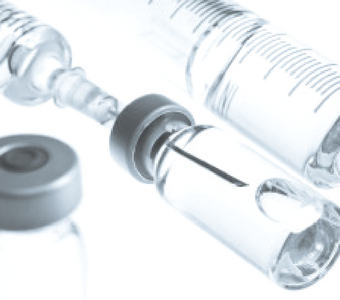Exelixis (NASDAQ:EXEL) Thursday is retracing some of its losses from the beginning of the week and is up 10% from yesterday’s close, to $5.00, due in part to shorts covering their position. The stock, however, has yet to recover to Tuesday’s open price of $5.42, from where the declines began. The fall off early this week was prompted by some block selling, which traders took as a sign that institutions may have received premature information on the approval status of EXEL’s lead product, cabozantinib. The drug is currently in the FDA review process as a treatment for metastatic medullary thyroid cancer (MTC), and the agency is expected to make a decision on or before the November 29 PDUFA date.
In August, the company announced that cabozantinib had been removed from the agenda of the Oncology Drugs Advisory Committee, which was set to vote in early November. Investors took the removal as a positive sign, anticipating that the FDA found the advisory panel unnecessary in the decision process. PropThink covered the news and advised that the announcement may have prompted an early rally into the FDA action date, which was on its way before this week’s sell-off. While the approval is an incremental positive for Exelixis, cabozantinib’s MTC indication is a small market, and investors are aware of this. Shares are likely to trade between $4.50 and $6 through October, with a run-up into the PDUFA date following, although some analysts are calling for an early approval. The large short position in EXEL should signal caution to investors as well. A small trade through the PDUFA run-up is feasible, but with the volatility that EXEL is showing this week – unnerving without any major catalysts – it may be prudent to stay away until the end of October. In the long run, cabozantinib’s results in a Phase III study for Castration Resistant Prostate Cancer (called COMET) may be more interesting to investors, as the market for prostate cancer drugs is large. Final data from that trial, however, won’t be available until 2014.



